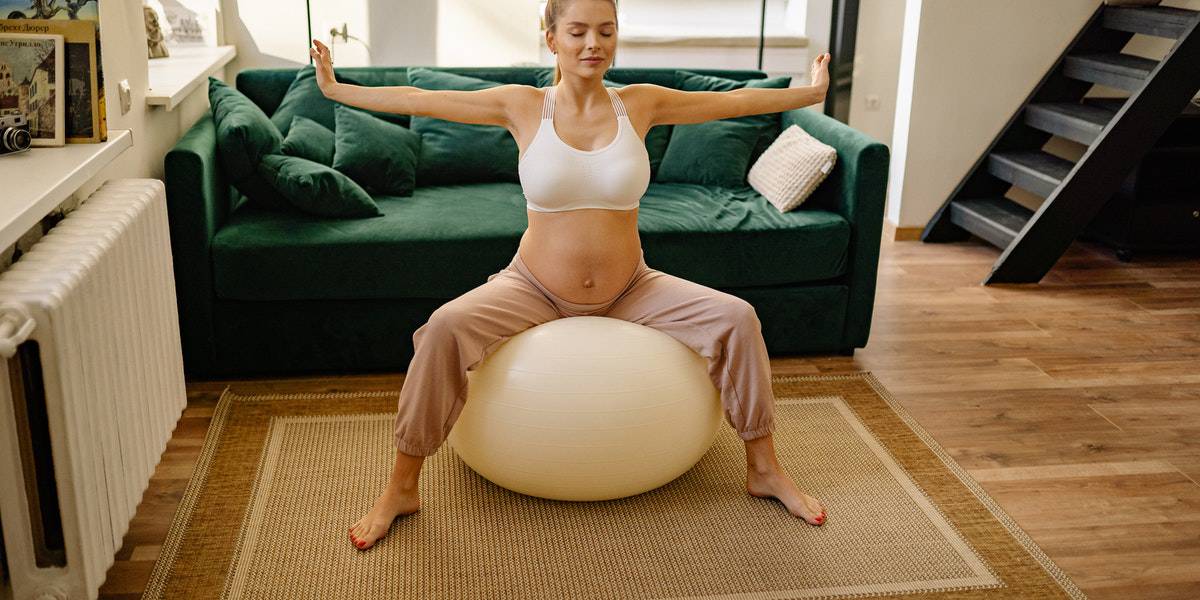You are several weeks into your pregnancy and your jeans a feeling a little tight. You start to suck in your tummy but then stop. Will it hurt the baby? The answer to that is no.
People may warn you that sucking in your belly while pregnant is to be avoided. Others will say that the practice is difficult because the pregnancy hardens your stomach muscles.
Pelvic muscles can become weaker if you suck in your stomach. That is why many women tell you to not do it. Though you may fear it will affect your baby, they are safe. The amniotic fluid that surrounds them acts as a protective barrier.
Is sucking in your belly an issue when pregnant?
As an Amazon Associate, I earn from qualifying purchases. The links below may be affiliate links. Please read my disclosure policy for more information.
Your muscles and back can be affected
Sucking in your gut to squeeze into your pants may seem harmless enough. However, what you may not understand is that you are causing your pelvic muscles to become weaker.
The pelvic muscles support the baby and are under greater stress due to the increasing weight of the growing child. Strong muscles allow you to recover quicker after birth.
Another benefit is that you reduce the risk of pelvic floor prolapse, this is where the organs within your pelvis can move out of place. Pelvic floor prolapse can cause a great deal of discomfort and pain as you go about your daily routines.
Your lower back can become stiff and sore if you try to suck in your breath (and hold it) too often. Another anatomical victim is your hips. They can also stiffen and start aching.
Don’t suck in your stomach when lying down
Struggling to get your pants on may have you contemplating sucking in your tummy and lying on your back to pull them on. That’s a big no-no when you’re pregnant.
When you are laying down you are putting pressure on the vena cava. This is the largest vein in your body and is made up of two parts:
- The superior vena cava transports blood from the head, neck, chest, and arms.
- The inferior vena cava carries blood to the lower parts of your body. The legs, your feet, and the organs within your abdomen and pelvis.
The pressure that you exert on this vein can affect the circulation of blood to your brain. That results in you feeling dizzy or lightheaded.

Sit-ups are okay, aren’t they?
If you are trying to maintain your core strength (and breathing exercises were your “go-to” method) then you may think that sit-ups are the best alternative.
Some say that sit-ups are okay for the first 16 weeks of your pregnancy. After that, your abdominal muscles become naturally hardened as a consequence of the developing baby within you. That makes it more challenging.
There is a major issue with this form of exercise. Sit-ups require you to lay on your back. We mentioned the issue around this in the previous section.
That doesn’t mean you can’t exercise. There is a range of fitness exercises that you can do to maintain muscle and back strength.
Keeping yourself and your body strong
Weakened muscles can affect the success of your pregnancy. They can also influence how quickly you bounce back into that amazing figure you had before the birth.
Thankfully there are activities that you can still do to keep yourself and your body strong.
The Bloom Method
This is becoming an increasingly popular choice amongst pre-and postnatal women. It was created by Brooke Cates, who is, amongst other accolades, a Postnatal Holistic Health Coach.
It is a subscription-based fitness and nutritional course. It incorporates a range of exercises such as building core strength, boxing, and cycling.
Everything is designed to prevent any harm to you or your baby inside. It also allows for the healing of conditions such as diastasis recti (a separation of the abdominal muscles due to pregnancy).
Standing Pelvic Tilt
This helps strengthen and maintain your pelvic muscles and floor.
Stand with your feet apart at shoulder width. Keep your knees relaxed throughout the exercise. Tilt your pelvis gently backward so that your spine is flat.
Sense the muscles in your buttocks and pelvis tighten. Hold the pose for five seconds and then return to your normal standing position. Repeat this exercise 10 times.

Yoga
Yoga is a low-impact activity that you can enjoy before, during, and after you have your baby. Here is a couple of yoga poses you to try. We have avoided ones that require you to lay either on your back or stomach.
Cross-legged Twist
This helps ease back pain as well as loosen any tension you feel.
Sit comfortably on the floor (with a pillow or cushion under you for support). Cross your legs and then breathe in. On the inhale lift your arms.
As you breathe out, place your right arm behind you and your left arm on your right leg. Twist gently to the right from your ribs, shoulders, and neck.
Your stomach and hips should remain facing the front. After five breaths, twist towards the left side.
Single-Leg Forward Bend
If you experience cramps in your legs or pelvic/hip pain, this exercise can help alleviate the aching.
Sit up straight and as tall as possible. Extend your right leg out in front of you and then flex your toes back.
Position your left foot against the inner thigh of your right leg. You can place your hands on either side of you to give you stability. Breathe in to extend how tall you are along your spine.
Breathe out and allow yourself to bow slightly forward. Gradually deepen your breathing.

Low Impact Exercise
You may be a gym bunny, but it gets harder to hop around as your pregnancy progresses. That doesn’t mean you have to forego keeping yourself as fit as possible. Here are some lower-impact exercises that you participate in.
Go for a walk
A good twenty-minute walk outside can do wonders for anyone, whether you’re pregnant or not. Granted that as you get bigger the walk may turn more into a waddle, but it’s a good way to keep yourself active.
The evening is an ideal time as the day is cooling down. Your chores are done and your friends may have finished work and they can join you.
Aerobics
There are a variety of aerobic exercises that you could do. Here are just some examples:
- Use a stair climber
- Cycling
- Dancing
- Aerobics classes
Choose something that you are comfortable with. Remember as you leave the first trimester of the pregnancy, it can become harder to move.
Pilates
Pilates can benefit pregnant women by strengthening the pelvic floor and offers some relief from backaches, If you have never tried Pilates before, here are some exercises you can do to dip your toes in the Pilates water.
Strengthen your tummy
Lie on your side on a gym mat or blanket. Have your knees slightly bent apart. Inhale and exhale while pulling your stomach toward the spine.
Hold this pose for 10 seconds and then relax. Repeat the exercise ten times.
Cat Stretch
This is an exercise that helps strengthen your back muscles.
Get on your hands (these need to be directly under your shoulders) and knees (which need to be under your hips). Inhale and relax your stomach.
As you breathe out, arch your back like a cat while lowering your head. Return to your original position while inhaling. Repeat the exercise five times.
Leg circles

Doing this exercise helps strengthen your back and abs.
Get on all fours and have your wrists in line with your shoulders. Gently inhale while lifting a leg behind you. Make a circular motion with your leg and then return it under you. Repeat with the other leg. Repeat four times.
Once you have tried these exercises and decided you are falling in love with Pilates, you can join a class in your neighborhood. There are also plenty of resources available online.
Seek medical advice
Before you undertake any type of exercise, talk to your doctor first. As your pregnancy progresses, look at changing your fitness regime if it gets harder to do.
The comfort of you and your baby is the guiding principle for exercise.
Don’t forget this warning: don’t do anything that requires you to lie either on your back or tummy.
Conclusion

Sucking in your belly when you’re pregnant is something you need to avoid. It can affect the strength of the core muscles associated with a successful birth.
Laying on your back can put pressure on the vena cava which can make you dizzy.
You also will find that as your tummy grows bigger it becomes harder. That makes it more difficult to suck in your stomach.
It’s just a fact about becoming pregnant. You’ll have to set your favorite jeans aside for a while.

